

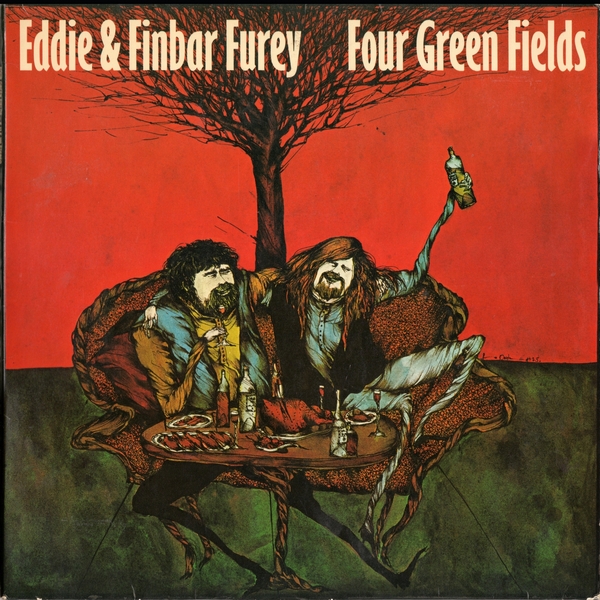 |
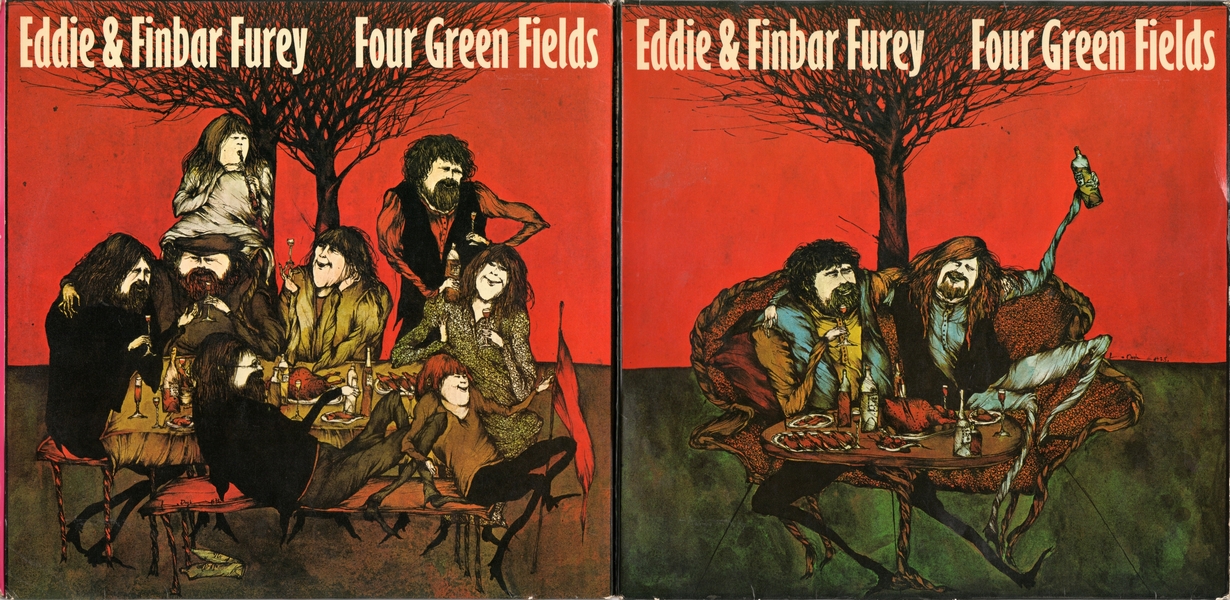
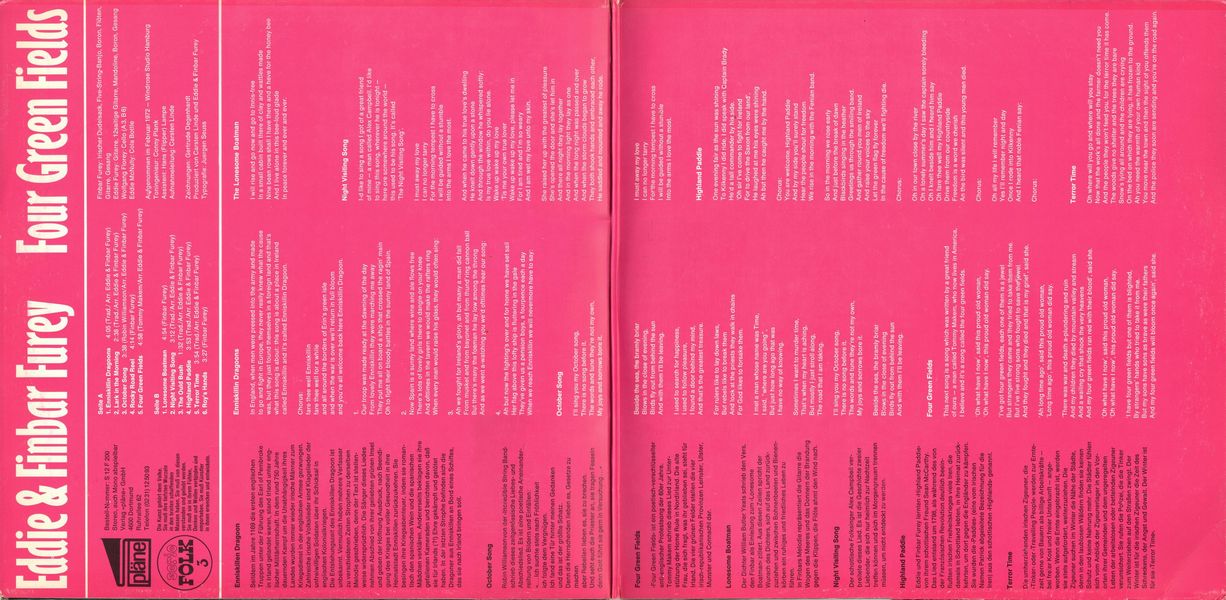
|
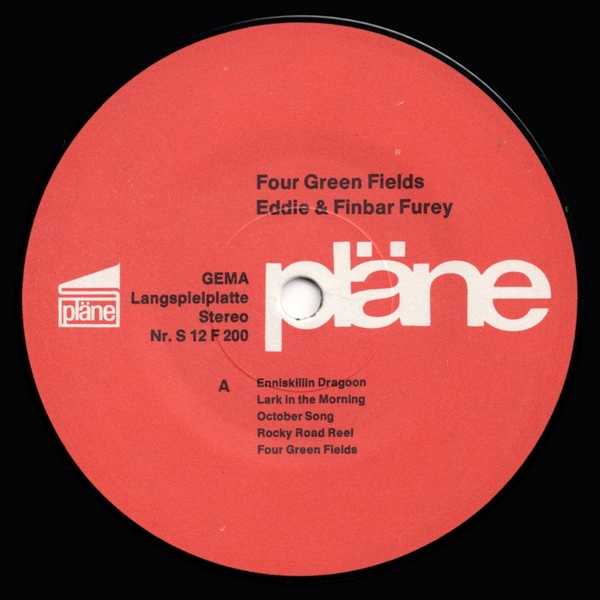
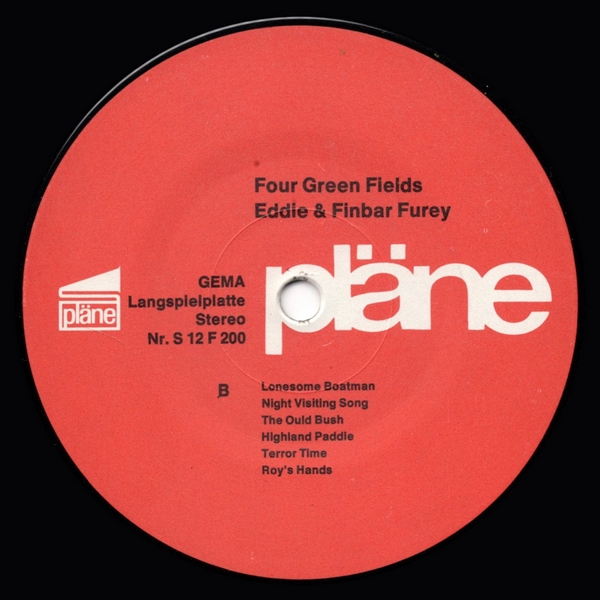
|
Sleeve Notes
Art belongs to the people.
She must have her deepest roots
in the broad creative
have crowds. She must of these
to be understood and loved.
She must have them in her feelings,
Connecting thinking and wanting and
lift up. She must be an artist
awaken and develop in them.
Enniskillen Dragoon — Ireland has been under English military rule since the first English troops led by the Earl of Pembroke landed in Ireland in 1169. In the 750-year struggle for independence in their country, Irish men were repeatedly forced into military service in the English army. Many Irish folk songs are the laments of the involuntary soldiers about their fate in the English colonial wars.
The origin of the Enniskillen Dragoon is unknown. It is likely that several authors wrote stanzas to the same melody at different times, since the text is contradictory in places. The singers of this song bid farewell to their beloved Emerald Isle and express the hope of returning to their hometown of Enniskillen in good health when the war is over. They sing of their wartime adventures, romantically glorifying Spanish wine and Spanish girls. On the other hand, they lament their fallen comrades and report that they fought and killed for Ireland's (?!) honor. In the last stanza, the Dragoons from Enniskillen are aboard a ship bound for Ireland.
October Song — Robin Williamson of the Incredible String Band wrote this contemporary love and farewell song. It is a poetic juxtaposition of images and ideas:
" … I was always looking for happiness I followed pleasure.
I found a door behind my mind and that is the greatest treasure.
Because rulers love to make laws but rebels love to break them.
And look at the priests; they wear chains, for God loves to lead them into temptation … "
Four Green Fields — "Four Green Fields" is a poetically encoded anti-English protest song from the 1960s. Tommy Makem wrote this song in support of Home Rule in Northern Ireland. The old woman who wonders what is left of her represents Ireland. The four green squares represent the four Irish Republican provinces of Leinster, Ulster, Munster and Connacht.
Lonesome Boatman — The poet William Butler Yeats wrote the verse Finbar quotes as the introduction to The Lonesome Boatman. From these lines speaks the poet's desire to retire to the country and live a quiet and peaceful life among bean beds and beehives.
In Finbar's melody, the guitar represents the swell of the sea and the pounding of the surf against the cliffs, while the flute mimics the wind.
Night Visiting Song — Scottish folksinger Alex Campbell popularized this song. It is the story of two lovers who can only meet secretly at night and must part at dawn to avoid being discovered.
Highland Paddie — Eddie and Finbar Furey learned 'Highland Paddie' from their Scottish friend Sean McCarthy. The song was written around 1798 when, during the Irish War of Independence, which was clearly influenced by the French Revolution, many Irish people then living in Scotland returned to their homeland to fight the English there. They were called the Paddies (a term for the Irish people derived from the Irish name Patrick) from the Scottish Highlands.
Terror Time — The itinerant Irish gypsies, the tinker or travelling people, are often recruited by farmers at harvest time as cheap labor — with free board and lodging. When the harvest is in, they are always asked to move on. In winter, the gypsies seek proximity to the cities because they can no longer find shelter or food in the leafless forests. City dwellers feel unsettled by the sight of the gypsy camps in the suburbs of their communities and the unregulated life of the unemployed or begging gypsies. They call the police, who force the tinkers to move on the streets. Winter is a time of horror, fear and violence for Irish Gypsies. For them, winter is "terror time".